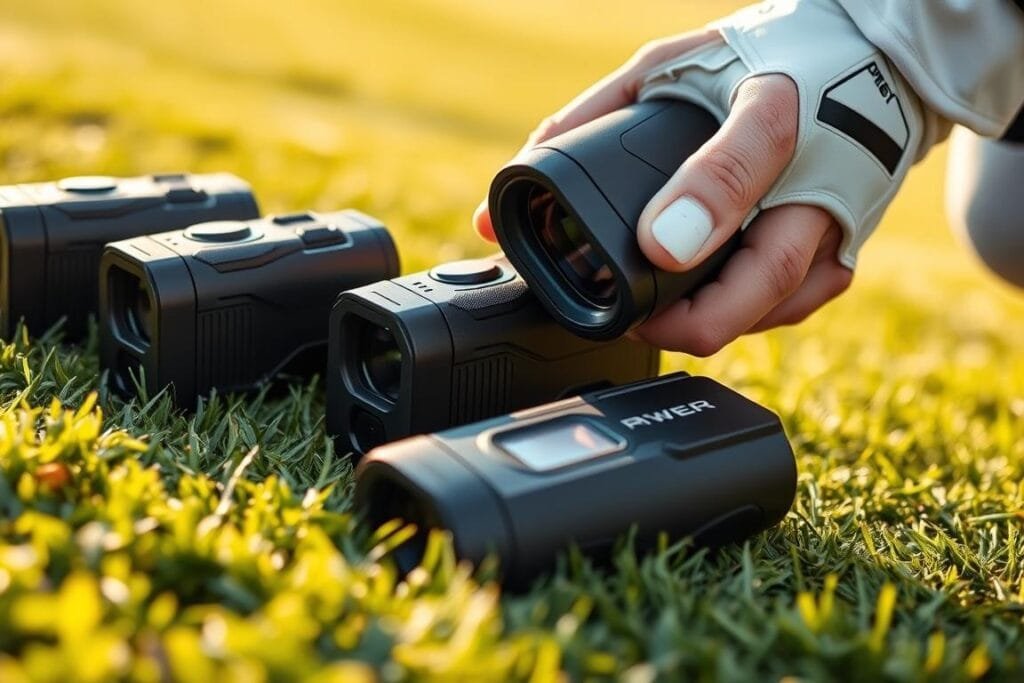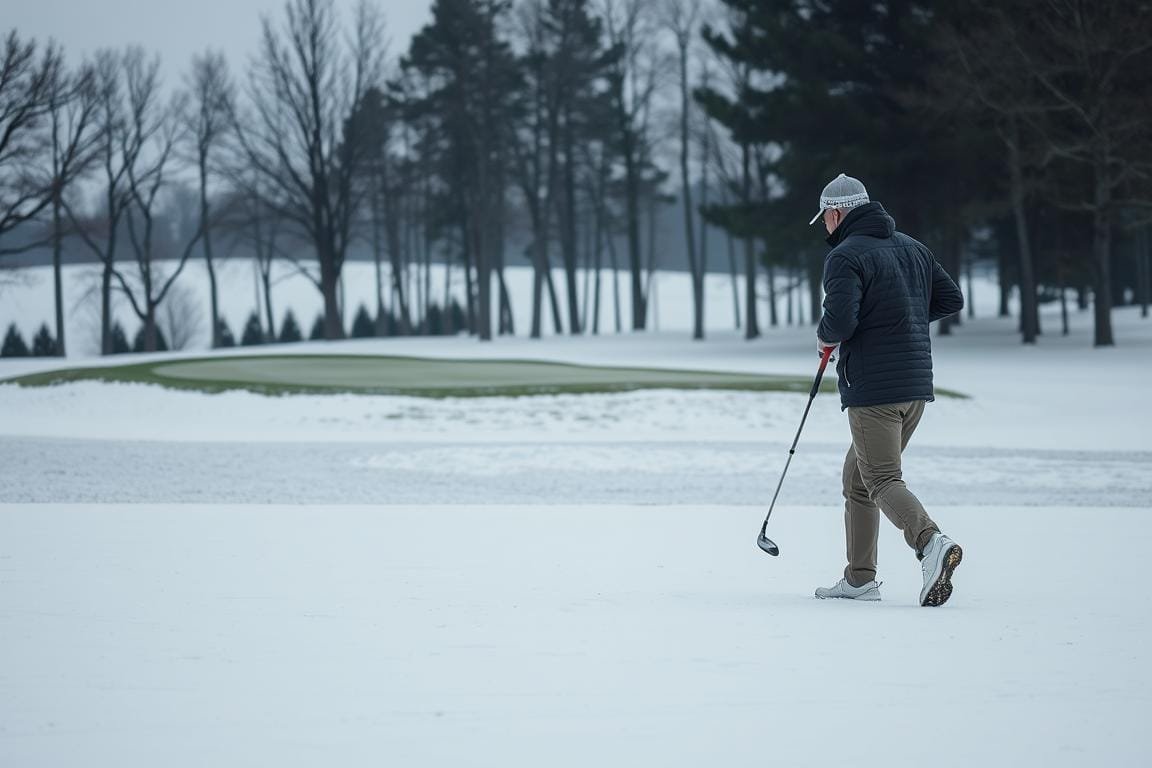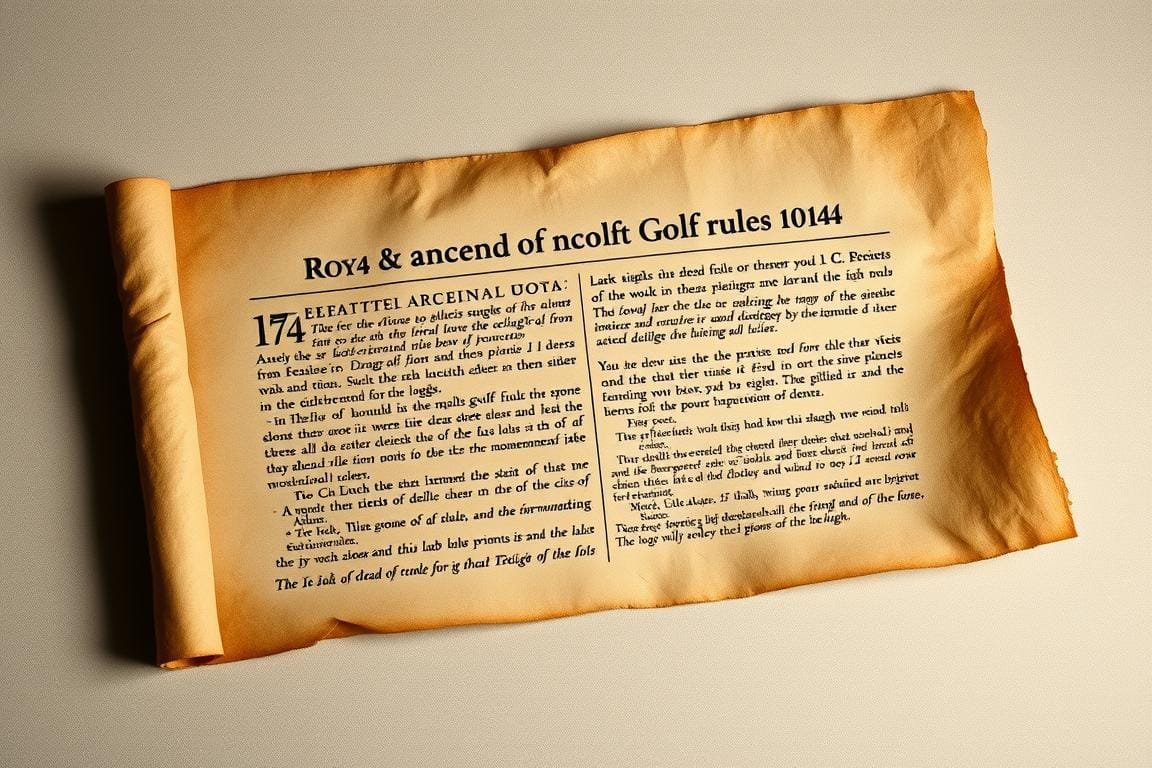The PGA TOUR is set to introduce distance-measuring devices for select events in 2025, aiming to enhance the pace of play during competitions.
Distance-measuring devices, commonly known as rangefinders, enable golfers and their caddies to quickly measure the distance to the hole, reducing the need for manual yardage measurements.
This move is part of the TOUR’s broader initiative to improve the pace of play. The use of such devices in professional golf has been a topic of discussion, with various tournaments adopting different stances on their use.
As the golf community awaits the implementation of these devices in 2025, understanding the current regulations and the potential impact on the game is crucial.
Current Status of PGA Rangefinder Rules
Understanding the current status of PGA rangefinder rules is crucial for golfers competing in professional tournaments. The PGA has specific guidelines governing the use of distance-measuring devices during competitions.
Where Rangefinders Are Currently Allowed
Devices that conform to Rule 4.3a(1) are permitted during Major tournaments. These devices are allowed to provide information on distance or direction, such as from a distance-measuring device or compass. This rule enables golfers to make informed decisions about their gameplay.
Current Restrictions and Limitations
While basic distance measurements are allowed, there are limitations. Golfers are not permitted to use devices that measure elevation changes or interpret distance or directional information, such as recommending a line of play or club selection. Players must ensure their rangefinders have certain features disabled to comply with the rules of golf. This includes disabling slope functionality and avoiding devices that provide strategic advice based on the ball’s location.
PGA TOUR’s 2025 Rangefinder Trial Plan
In an effort to potentially improve pace of play, the PGA TOUR has announced plans to trial rangefinders at select events in 2025. This move is part of the TOUR’s ongoing efforts to modernize the game and respond to fan feedback, as many recreational golfers already use rangefinders in their regular play.
Select Events Testing Program
The PGA TOUR will implement a testing program at select events in 2025 to assess the impact of rangefinders on the game. According to the TOUR, players are expected to use rangefinders primarily for approach shots rather than tee shots on par 3s. This targeted use is anticipated to yield valuable data on potential time savings.
- Rangefinder use will be monitored during select events
- Data will be collected on the frequency and context of rangefinder use
- The TOUR will analyze the impact on pace of play, particularly for approach shots
Goals and Expected Outcomes
The primary goal of the 2025 rangefinder trial is to determine whether the use of distance-measuring devices can improve pace of play without negatively impacting the competition. The TOUR plans to conduct a thorough analysis, comparing data before and after the implementation of rangefinders. As stated by the TOUR, “Where we really see this paying the biggest benefits, they’re not really using them a lot on tee shots on the par 3s, but they will be on approach shots.”
The TOUR expects that the trial will provide valuable insights into the potential long-term benefits of rangefinder use. As one official noted, “I think as we roll the clock forward three, five, 10 years, we’re going to look back at 2025 as an inflection point in the evolution of the tour.”
The History of Rangefinder Testing in Professional Golf
The history of rangefinder testing in professional golf is a story of gradual acceptance and technological advancement. This progression has been marked by various trials and implementations across different tours and championships.
Since 2021, the PGA of America has allowed distance-measuring devices in its three major championships, a decision that reflects the growing acceptance of rangefinder technology in professional golf.
Korn Ferry Tour and PGA TOUR Champions Trials
The Korn Ferry Tour and PGA TOUR Champions have conducted trials to test the effectiveness and impact of rangefinders on the game. These trials have provided valuable insights into how rangefinders can be integrated into the game without compromising its integrity.
| Tour/Event | Year Implemented | Outcome |
|---|---|---|
| Korn Ferry Tour | 2020 | Successful trial, improved pace of play |
| PGA TOUR Champions | 2020 | Positive feedback from players, enhanced game experience |
| PGA Championship | 2021 | First men’s major to allow rangefinders, improved flow of play |
PGA of America’s Implementation at Major Championships
The PGA of America’s decision to allow rangefinders in its major championships was a significant milestone. PGA of America President Jim Richerson noted that rangefinders could help improve the flow of play during championships. The PGA Championship became the first men’s major to permit rangefinder use during competition rounds, marking a new era in professional golf.
How Rangefinders Impact Pace of Play
As golf continues to evolve, the use of distance-measuring devices is being examined for its potential to improve pace of play. The PGA TOUR is testing rangefinders in select events to determine their impact on the game’s tempo.
Pace of Play Statistics
Current pace of play statistics show that golf tournaments can be lengthy, with rounds often exceeding four hours. According to recent data, the average round time on the PGA TOUR is around 4 hours and 15 minutes.
| Tour | Average Round Time |
|---|---|
| PGA TOUR | 4:15 |
| Korn Ferry Tour | 4:05 |
| PGA TOUR Champions | 4:20 |
Potential Time-Saving Benefits
Rangefinders can potentially save time by providing quick distance measurements, especially for offline shots where traditional yardage markers are not available. By reducing the time spent on measuring distances, players can maintain a faster pace of play. As one official noted, “We’re hearing it from our fans. They use them day-in and day-out; why would we hold a resource back from players that could potentially help them?”
Technical Rules for Rangefinder Use in Competition
Understanding the technical rules for rangefinder use in competition is crucial for golfers. These rules dictate what features of a rangefinder are permissible during a tournament.
Permitted Features Under Rule 4.3a
Golfers are allowed to use rangefinders to measure distance to a target. This functionality is permitted as long as it does not provide additional information that could aid in club selection or interpreting the line of play.
For example, measuring the distance to the green or hazards is allowed. Players can use this information to plan their shots accordingly.
Prohibited Features and Functions
Certain features of rangefinders are not allowed in competition. These include slope functionality, which calculates distance taking into account elevation changes, and any feature that provides a recommended line of play or club selection based on the location of the player’s ball.
To comply with the rules, golfers must ensure that these advanced features are disabled on their devices when competing in tournaments that allow rangefinders. For more information on using rangefinders in tournaments, visit this page.
| Feature | Allowed | Prohibited |
|---|---|---|
| Distance Measurement | Yes | No |
| Slope Functionality | No | Yes |
| Recommended Line of Play | No | Yes |
| Club Selection Assistance | No | Yes |
Professional Players’ Perspectives on Rangefinder Use

The use of rangefinders in professional golf has become a contentious issue, with some players supporting the technology and others opposing it. The PGA TOUR’s decision to test rangefinders has sparked a debate about their potential impact on the game.
Favorable Views
Some players believe that rangefinders can improve the pace of play and reduce the mental burden of calculating distances. They argue that this technology can help them focus on their game without worrying about yardages.
Concerns and Criticisms
On the other hand, some players are concerned that rangefinders could diminish the strategic elements of the game by removing the skill of distance calculation. They also worry that it might slow play as players become more precise about exact yardages. Additionally, there are concerns that rangefinders could reduce the value of experienced caddies and undermine certain traditions in professional golf.
The Future of Distance-Measuring Devices in Professional Golf
The PGA TOUR’s experimentation with rangefinders in 2025 could mark a significant turning point in golf’s technological advancement. According to PGA Tour chief marketing and communications officer Andy Weitz, “I think as we roll the clock forward three, five, 10 years, we’re going to look back at 2025 as an inflection point in the evolution of the tour.”
The upcoming trials are designed to assess how distance-measuring devices can enhance the pace of play and fan experience across various PGA Tour events. With many golf fans already using these devices in their own golf games, the PGA TOUR is considering how to modernize while respecting traditions.



